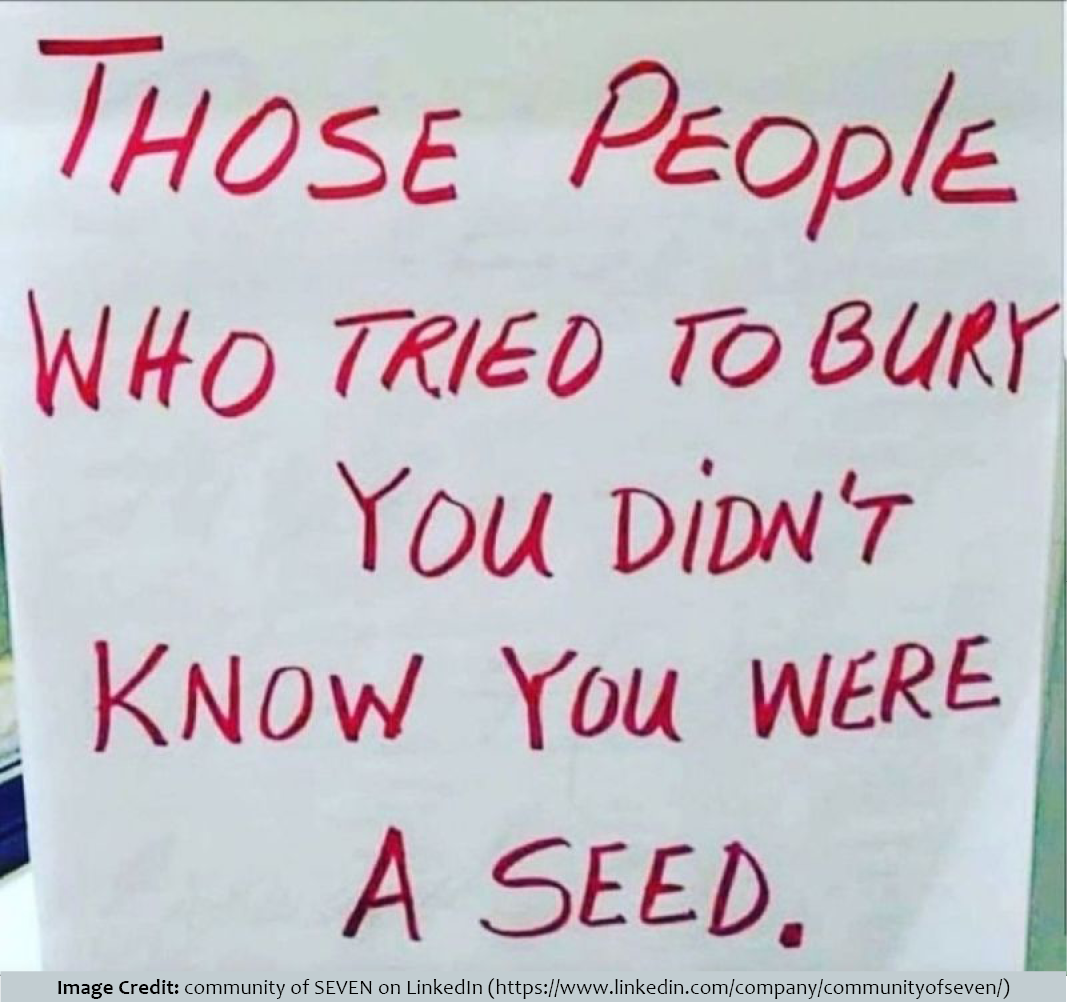Rebecca Lewis
Portfolio Menu
In Which Group Are You?
Originally posted by Rebecca Lewis on LinkedIn
©2023 by Rebecca Lewis. All rights reserved.
I’ve noticed something very strange.
It often takes direct experience of an “intractable” problem—being on the painful, receiving end of it—to have relevant insights and ideas about how to make progress toward solving it.
So that means that we’ve identified a group of people who is more likely than others to know some pivotal, effective things that need to happen!
What else do we know about that group of people?
There’s not much we can precisely KNOW, with such a vague description of these people, but here are some themes and patterns in common that I have noticed:
Everyone is different, but it is more likely for a person to be overwhelmed by a given problem, have some aspect of their functioning impaired by it, or to lack energy and resources to address it if they have been directly experiencing it.
They are more likely to be at least somewhat buried or blocked by it.
That leaves us with this: The people who know what needs to happen often don’t have energy or resources to make it happen.
People who DO have energy and resources to make things happen are actually more likely to have never painfully experienced a given problem directly, themselves.
According to my experience and observation, it can be very tricky to persuade those people, who have energy and resources, to want to learn from the people who have been directly experiencing the problem.
If those two groups do not find any way to reciprocally admire and value each other, so that they consider each other as partners in the same effort, then significant progress just doesn’t happen.
Progress does not yet have traction.
What would it take to interest these two groups of people in each other?
What could we do to “prepare the ground” and set up optimal conditions for people to want to decide for themselves to learn, grow, and change—even if it is painful?
What sorts of seeds—of ideas and questions—could we plant?
“The ultimate defiance is to finally make it out of the swamp and, instead of going on with your life in relief and gratitude, with your strong legs from walking through the swamp, to instead turn around and reach for others.
“To go back into the swamp and sit down with them for periods of time, if necessary, while they struggle, if they do not yet know how to reach for your hand.
“To not be the only one who escapes.
“This runs counter to our culture’s definitions of ‘self-care.’
“That’s okay; we’ll reach for them, too.”
—Rebecca Lewis
Image Credit: community of SEVEN on LinkedIn
